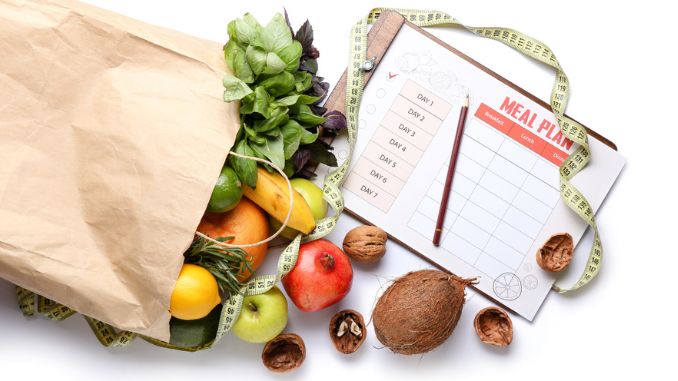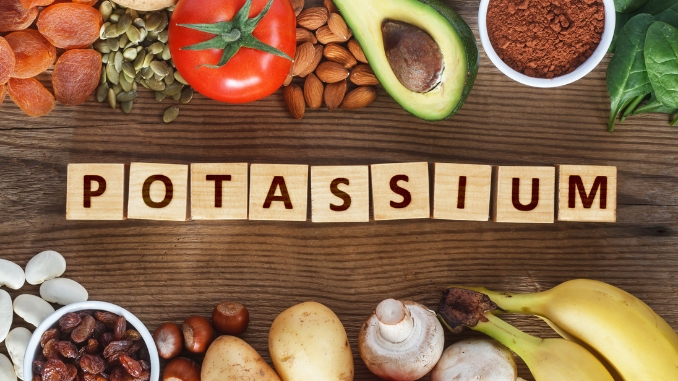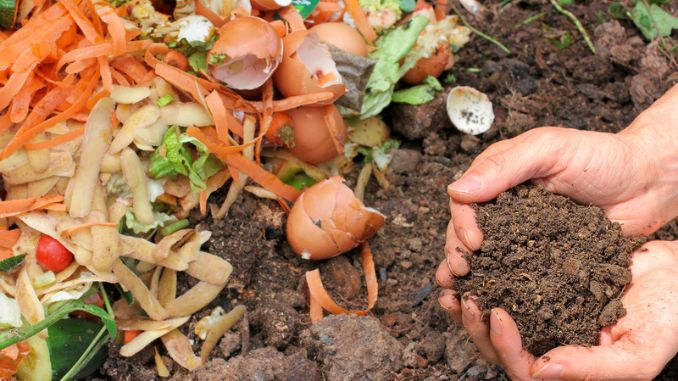According to a recent study led by researchers from Cedars-Sinai, almost one out of every seven Americans [¹] with bloating every week, with many of them turning to debloating methods instead of seeking help from healthcare professionals.
However, according to Dr. Janice Oh, a resident physician in the Division of General Internal Medicine at Cedars-Sinai. People should feel at ease talking about bloating because it might signal a serious health issue, and there are treatments accessible for it.
What Is Bloating?
Abdominal bloating is when your belly feels full or tight [²], usually with gas and a visibly swollen stomach. It can make you uncomfortable and even interfere with your daily activities.
Bloating is a frequent indication of digestive ailments like irritable bowel syndrome (IBS), constipation, and gastroesophageal reflux disease (GERD), all of which impact the digestive system. It can also be caused by certain foods, overeating, swallowing air, or hormonal fluctuations.
To effectively debloating, it's important to understand the underlying causes of abdominal bloating. By identifying the root cause, you can implement targeted strategies to reduce bloating and improve your overall digestive health.
Common Causes Of Bloating
Bloating and debloating can be caused by various factors, and understanding these common triggers can help you manage your symptoms more effectively.
Some of the most common causes of bloating include:
Dietary Factors

Certain foods are known to cause bloating due to their composition and how they interact with the digestive system.
For instance, beans, lentils, broccoli, cabbage, onions, and carbonated drinks contain high amounts of fiber [³], complex carbohydrates, or sugars that can ferment in the gut.
This fermentation process produces gases like methane and hydrogen, leading to gas accumulation and debloating.
Additionally, some individuals may have sensitivities to specific food components, such as FODMAPs [⁸] (fermentable oligosaccharides, disaccharides, monosaccharides, and polyols), which can exacerbate bloating symptoms.
Poor Digestion
Optimal digestion is crucial for preventing bloating. When the digestive system encounters challenges such as insufficient stomach acid, enzyme deficiencies, or imbalances in gut bacteria (dysbiosis), it can lead to inefficient breakdown and absorption of food.
Undigested food particles can ferment in the gut, producing gasses and causing bloating. Additionally, dysbiosis may lead to an overgrowth of harmful bacteria, further contributing to digestive disturbances and bloating.
Swallowing Air
Ingesting air unintentionally, known as aerophagia, can contribute to gas and bloating. This can occur when individuals eat or drink too quickly, chew gum excessively, or consume beverages through a straw.
Swallowed air accumulates in the digestive tract [⁴], forming gas pockets that can cause abdominal distention and discomfort. Moreover, habits such as talking while eating or drinking from narrow-mouthed containers can increase the likelihood of swallowing air and exacerbating gas and bloating symptoms.
Hormonal Changes
Fluctuations in hormone levels, particularly estrogen and progesterone, can influence fluid balance and contribute to bloating, especially in women. During the menstrual cycle, estrogen levels rise in the first half, promoting fluid retention and potentially causing bloating and abdominal discomfort.
During the latter part of the menstrual cycle, progesterone levels rise, causing the muscles in the digestive tract, including smooth muscle tissue, to relax. This relaxation can slow down digestion, prolonging the transit time of food through the intestines and increasing the likelihood of bloating.
During the latter part of the menstrual cycle, progesterone levels rise, causing the muscles in the digestive tract, including smooth muscle tissue, to relax. This relaxation can slow down digestion, prolonging the transit time of food through the intestines and increasing the likelihood of bloating.
Identifying the specific causes of bloating is essential for developing effective management strategies. By addressing dietary triggers, optimizing digestion, minimizing air swallowing habits, and managing hormonal fluctuations, individuals can reduce bloating and improve their overall digestive comfort and well-being.
Top 7 Debloating Tricks By Experts
Adjusting your diet is among the most efficient methods for debloating. By eliminating or reducing certain foods known to cause bloating, you can alleviate your symptoms and improve your digestive health.
Here are some dietary tips recommended by experts:
1. Limit Salt Intake

Eating excessive amounts of salt can result in water retention in your body [⁶] which can lead to bloating.
Avoid processed foods and salty foods, and opt for fresh, whole foods instead. Season meals with herbs, spices, or lemon juice instead of too much salt to add flavor without increasing sodium intake. Additionally, consider incorporating Epsom salt baths into your routine. Epsom salt baths can help draw out excess water and reduce bloating, providing relief for a more comfortable feeling.
2. Reduce High-FODMAP Foods
FODMAPs, which refer to fermentable oligosaccharides, disaccharides, monosaccharides, and polyols, are types of carbohydrates that the small intestine doesn't absorb well, potentially causing bloating [⁵] and various digestive problems.
Common high-FODMAP foods include:
WheatOnionsGarlicApplesPearsCertain legumes
By reducing your intake of these foods, you can often see a significant reduction in bloating.
3. Increase Fiber Intake
Although certain high-fiber foods may cause bloating, boosting your fiber intake overall can aid in regulating bowel movements and alleviating constipation, a frequent bloating trigger.
Opt for soluble fiber sources like:
OatsChia seedsFlaxseeds
These are easier to digest and less likely to cause bloating.
4. Stay Hydrated

Drinking enough water throughout the day can help prevent constipation and keep your digestive system functioning properly. Aim for at least 8 glasses of water daily and limit your intake of dehydrating beverages like alcohol and caffeine.
5. Practice Abdominal Massage
Gently massaging the abdomen [⁹] can aid in promoting digestion and relieving bloating. With your fingertips, apply gentle pressure in circular motions around your belly button, moving in a clockwise direction. This technique can assist in stimulating bowel movements and decreasing gas buildup
6. Consider Food Intolerances
Some individuals may experience bloating due to food intolerances [¹⁰] or sensitivities. Common culprits include dairy products, gluten-containing foods, and artificial sweeteners. Keep a food diary to track your symptoms and identify any potential trigger foods, then consider eliminating them from your diet to see if your symptoms improve.
7. Practice Mindful Eating
Eating slowly and mindfully can help prevent swallowing excess air, which can contribute to bloating. Chew your food thoroughly, and take breaks between bites to allow your body to digest food properly. Avoid eating while distracted or on the go, as this can lead to overeating and poor digestion. By making these dietary changes, you can support your digestive system and reduce bloating naturally and effectively.
Incorporating Exercise For Abdominal Bloating Relief
In addition to dietary changes, regular exercise can also play a crucial role in debloating and reducing abdominal bloating. Exercise helps stimulate digestion, improve gut motility, and reduce constipation, all of which can contribute to bloating.
Here are some exercise tips to help alleviate bloating:
Cardiovascular Exercise
Engaging in activities like brisk walking, jogging, cycling, or swimming can help stimulate bowel movements and relieve bloating caused by trapped gas or excess gas. Aim for at least 30 minutes of moderate-intensity cardio exercise most days of the week.
Poses like:
Child's PoseCat-CowSupine Twist
These can help relieve gas and promote healthy digestion.
Abdominal Exercises
Strengthening the abdominal muscles can help improve digestion and reduce bloating. Exercises like planks, crunches, and leg raises can help tone and strengthen the core muscles, supporting better digestion. By incorporating regular exercise into your routine, you can improve your digestive health and reduce bloating over time.
Avoiding Bloating Triggers
In addition to adopting debloating techniques, avoiding triggers that can exacerbate bloating is important. By identifying and avoiding these triggers, you can prevent bloating episodes and maintain better digestive health.
Here are some common bloating triggers to be aware of:
1. Carbonated Drinks
Carbonated beverages, like soda and sparkling water, are known to introduce excess air into the digestive system, which can result in uncomfortable bloating. The carbonation in these drinks creates bubbles of carbon dioxide gas that can become trapped in the gastrointestinal tract, causing distension and pressure in the abdomen.
2. Chewing Gum

Chewing gum may cause you to swallow air [¹¹], which can contribute to bloating. If you're prone to bloating, it's best to avoid chewing gum or choose sugar-free options. Additionally, be mindful of sugar alcohols in sugar-free gum, as they can also lead to bloating and digestive discomfort in some individuals.
3. Artificial Sweeteners
Artificial sweeteners like sorbitol, aspartame, and sucralose are known to cause digestive issues and bloating in some individuals.
If you're sensitive to them, read food labels and avoid products that contain them. By being mindful of these triggers and making conscious choices, you can reduce the frequency and severity of bloating episodes.
Seeking Professional Help For Chronic Bloating

While occasional bloating can often be managed with lifestyle changes, chronic or severe bloating may require professional help. If your bloating is persistent, accompanied by other concerning symptoms, or significantly impacting your quality of life, it's important to seek medical advice. A healthcare professional can help identify any underlying conditions or provide targeted treatment options to alleviate your bloating.
Summary
Debloating encompasses a range of dietary and lifestyle adjustments aimed at reducing abdominal discomfort and bloating. This involves strategies such as minimizing intake of gas-producing foods while incorporating probiotic-rich options to support gut health, staying hydrated, and practicing mindful eating. Lifestyle changes like managing stress levels and engaging in regular physical activity also play crucial roles in digestion.
Additionally, identifying and addressing underlying digestive issues and food intolerances is essential. By adopting a comprehensive approach tailored to individual needs, individuals can effectively manage bloating and improve overall digestive comfort and well-being.
Are you ready to transform your digestive health and feel your best? Join our 14-Day Digestive Health Quick Start Program and embark on a journey to better digestion, increased energy, and overall well-being.

Rick Kaselj MS, is a leading kinesiologist and injury specialist as well as co-creator of the best-selling Unlock Your Hip Flexors program. Rick creates exercise programs that help people heal injuries and eliminate pain, so they can go back to living a full, active, healthy life.








